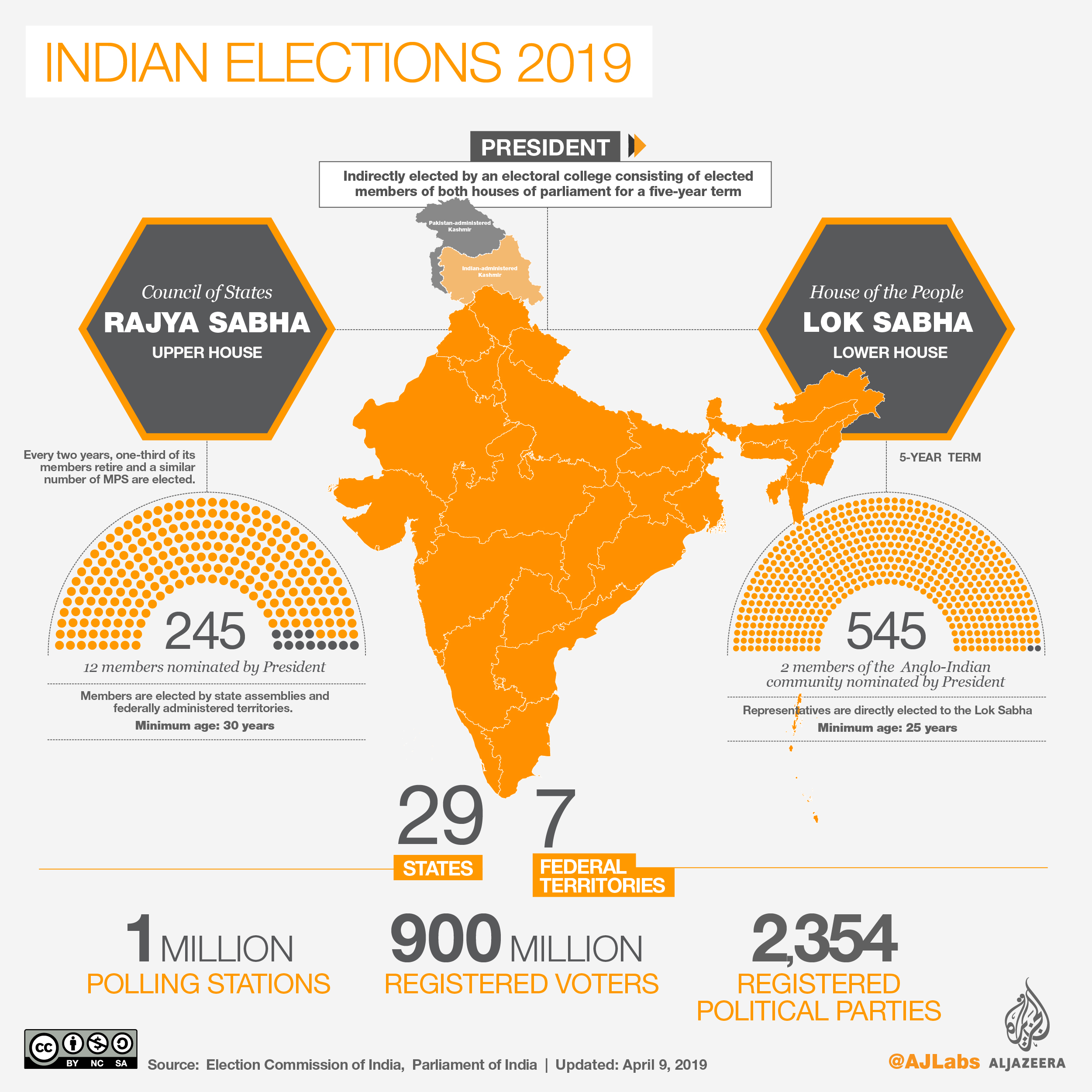Voting begins in third phase of India elections
Voting has started in the third and largest phase of India’s staggered general election, including in Prime Minister Narendra Modi’s home state of Gujarat and southern Kerala, where opposition Congress party chief Rahul Gandhi is contesting.
Tuesday’s voting for 117 parliamentary seats in 13 states and two Union Territories means polls are half done for 543 seats in the lower house of Parliament.
In all, 188 million voters are eligible to cast ballots in 117 constituencies during the day – across 15 states and federally controlled territories.
The general election, which has seven phases, began on April 11 and will end on May 19. Votes will be counted on May 23.
Approximately 900 million voters – more than the combined population of the United States and the European Union– are eligible to participate in the world’s biggest electoral exercise.
The election is seen as a referendum on Modi’s five-year rule. He has adopted a nationalist pitch trying to win the majority Hindu votes by projecting a tough stance against neighbouring Pakistan.
The opposition is challenging him for a high unemployment rate of 6.1 percent and farmers’ distress aggravated by low crop prices.
“This is, sort of, an inflation point,” said Rahul Verma, a fellow at the New Delhi-based think-tank Centre for Policy Research.
So far, the ruling Bharatiya Janata Party (BJP) has aggressively pushed Modi’s national security record as it seeks to offset the opposition’s charges of economic mishandling, inadequate jobs creation and widespread farm distress.
“I think job creation, sustainable development, and communal harmony should be the top priorities for the upcoming government,” said Ubaidullah Mohyideen, 26, who voted on Tuesday in Kerala’s Wayanad, one of the two seats that Gandhi is contesting.
Voting in India is conducted by electronic voting machines or EVM, which was first introduced in 1982. More than 2.3 million EVMs will be used in 2019 elections as compared with 1.8 million ones in 2014.
To check for foul play, vehicles transporting the EVMs will be fitted with GPS devices to monitor their movements.
The EVMs allows vote counting to be completed in up to three hours compared with manual counting, which could take 30 to 40 hours.
 |
SOURCE:
Al Jazeera and news agencies




